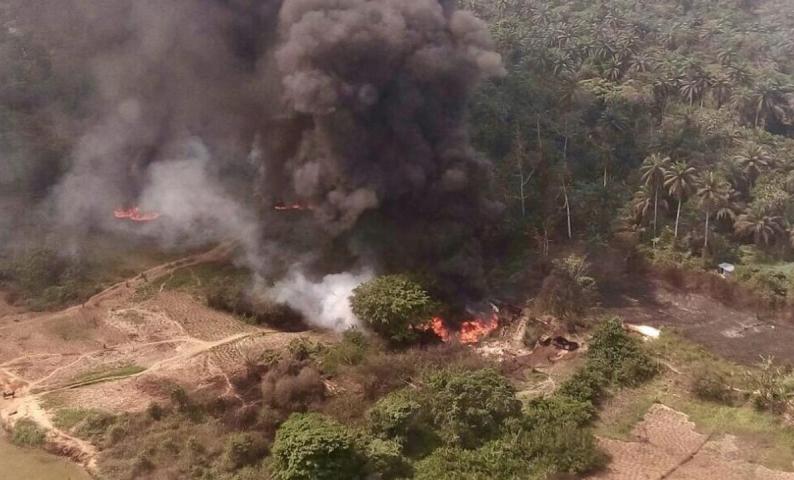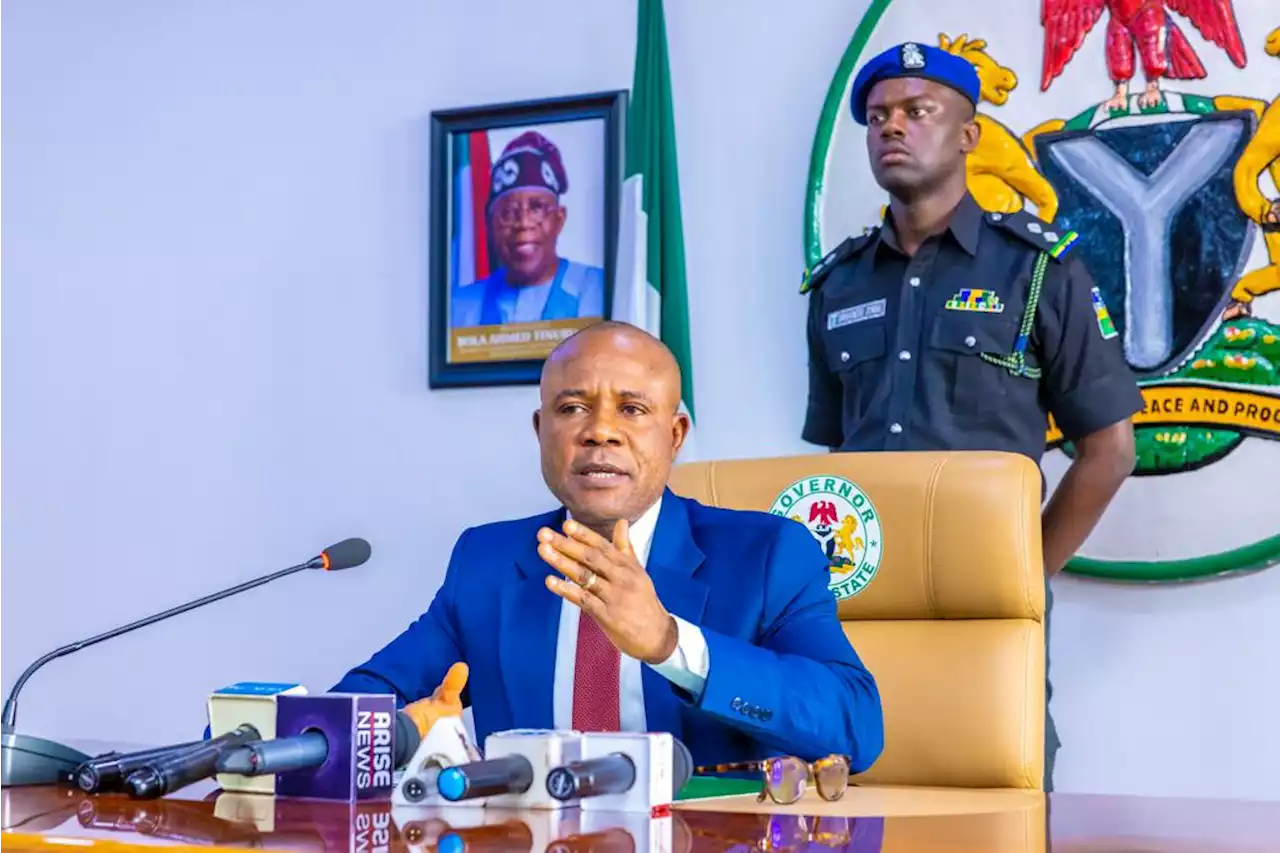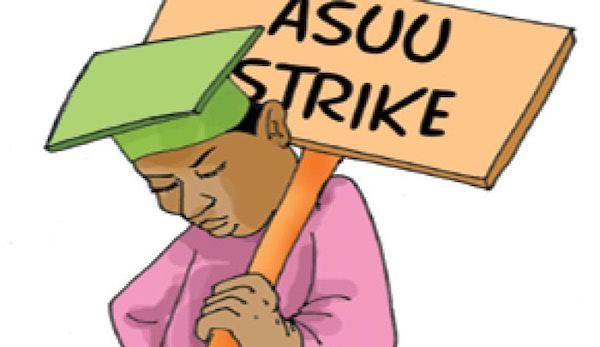NEWS
Nigeria Celebrates WHD Today with Focus on Effects of Climate Change

By Joseph Chibueze, Abuja
Nigeria today joins the rest of the global community to celebrate
World Humanitarian Day (WHD), a day set aside to honour humanitarian
aid workers all over the world.
The celebration this year will focus on the effects of climate change
and its devastating effects on communities.
Speaking on the theme of this year’s WHD which is climate change,
Humanitarian Coordinator for Nigeria, Edward Kallon, said the
Humanitarian Country Team (HCT) is using the event to remind everyone
in Nigeria that it is no longer about the possibility of a climate
emergency, “we are now living through it,” he said.
Last year, like every year, humanitarian organisations and workers
helped people affected by extreme weather-related events. In West and
Central Africa, climate change effects are felt in rising
temperatures, droughts and floods that are affecting people’s
livelihood, shelter and physical and mental well-being.
According to Kallon, “The climate emergency is a race that we cannot
afford to lose.
“Extreme stress, property loss and food/water scarcity contribute to
community conflict over resources, leading to increased incidences of
community tensions and farmer-herder violence in north-east Nigeria.”
Nigeria has experienced the highest number of fatalities from
conflicts between farmers and herders concentrated in the
northwestern, Middle Belt, and more recently in southern states.
The impact of climate change has significantly increased in West and
Central Africa over the past 10 years with geographic concentrations
in north-east Nigeria. Here, people struggle to have access to food
and suffer from climatic shocks that are negatively affecting food
crops, driving up food prices. The economic decline has drastically
reduced the buying power of communities to secure even the basics.
Extreme weather resulting from climate conditions can delay the
delivery of life saving assistance and place humanitarian workers at
great risk. As climate patterns become more volatile, heavy rains
result in frequent flash floods, making it more difficult to mount a
timely response. The security situation in the north-east is still
precarious with ongoing attacks on humanitarian assets, infrastructure
and personnel.
Climate hazards especially affect women and girls, who often bear a
disproportionate burden to provide for their families by going without
food and other means of sustenance. As droughts make water even more
scarce, women and girls are forced to walk longer distances to obtain
potable water, increasing their exposure to sexual harassment and
assault as they travel to bring back these essentials.
“Time is already running out for millions of vulnerable people in the
north-east, we need to act now,” said Mr. Kallon. “Men, women and
children who have contributed least to this climate emergency are,
sadly, the most affected.”
There will be several environmental/climate change events happening
simultaneously during WHD, as Borno, Adamawa and Yobe states will
engage in tree planting, trash pick-up in communities and open
discussions on local radio on what actions people can take to fight
the effects of climate change. The UN and partners have also enlisted
the support of national climate change and environmental influencers
to spread the message on social media through interactive sessions.
Meaningful climate action is needed as climate change will continue to
detrimentally affect access to clean water, food, and other resources,
resulting in adverse effects to the safety and well-being of
communities in the north-east BAY states. As we head rapidly towards
the end of the year, funding levels do no match the increasing
needs—the Humanitarian Response Plan remains only 33 per cent
funded—while the total ask is over $1billion.
“We cannot afford to accept climate disasters as inevitable. We are in
the most important race of our lives. And, together, we can make
meaningful changes to mitigate the effects of climate change.” said
Mr. Kallon.
NEWS
21 Terrorists Neutralised in Damboa Again — Army

Troops of Operation Hadin Kai (OPHK) have repelled a deadly attack by ISWAP terrorists in Damboa, Borno, neutralising 21 insurgents and recovering a cache of arms and ammunition.
Capt. Reuben Kovangiya, Acting Deputy Director, Army Public Relations, Headquarters Theatre Command, confirmed this in a statement issued in Maiduguri on Friday.
Report saya that the attack, which occurred in the early hours of Friday, targeted troops of the 25 Task Force Brigade.
Daily Asset, however, reports that the soldiers, with the support of the Air Component of OPHK, engaged the terrorists in a fierce and prolonged firefight that lasted over two hours.
Kovangiya said the troops displayed gallantry and tactical superiority during the confrontation, forcing the terrorists to retreat in disarray, leaving behind more than 21 of their fighters who were neutralised during the engagement.
“The gallant troops, supported by Close Air Support, stood their ground and repelled the attack despite the ferocity of the enemy.
“The insurgents suffered devastating losses and were forced to flee,” he said.
The spokesman said that during the exchange of fire, an ammunition storage facility within the military formation was hit by a blast, but the situation was quickly brought under control.
He also confirmed that the troops recorded minor casualties.
“Following the mop-up and exploitation operation, the following weapons and ammunition were recovered:
“Two General Purpose Machine Guns (GPMG) three Rocket Propelled Grenade (RPG) tubes, one pump-action rifle, nine AK-47 rifles, three belts of PKT rounds, eight AK-47 magazines, seven RPG bombs, two boxes of 12.7mm x 99mm ammunition, one and a half box of PKT rounds and 20 pieces of 36 hand grenades,” Kovangiya said.
The spokesman said that the success of the operation was a clear demonstration of the effectiveness of joint land and air efforts in counterterrorism operations which further reaffirmed the Nigerian military’s resolve to restore peace in the North-east.
“The bravery and sacrifice of the troops remain a symbol of national pride.
“Their unwavering commitment to defeating insurgency and restoring peace in the region is commendable,” he said.(NAN)
NEWS
Enugu Govt Sets up Human Development Council

Gov. Peter Mbah of Enugu State, on Friday, inaugurated the Enugu State Human Development Council at the Government House. He stressed that human capital remains the true wealth of any nation and a core priority of his administration. The Council is chaired by the Deputy Governor, Ifeanyi Ossai, and includes State Executive Council members and heads of MDAs.
Also represented are the legislature, local governments, traditional rulers, church leaders, and civil society organisations. Mbah explained the Council aligns with his government’s emphasis on human development and social investment. He urged the members to take the task seriously and work towards tangible outcomes. “One of our top priorities is eradicating poverty and reducing the poverty headcount to zero,” Mbah noted. He added that the government’s philosophy prioritises human capital over natural resources. “Our last two budgets allocated over 50 per cent to social services,” the governor stated. In his response, Ossai assured the governor of members’ commitment to the Council’s goals. He emphasised that all government initiatives — from schools to roads — are people-focused. “All our projects aim to improve lives, and the Council will help us track and measure progress,” Ossai said. (NAN)NEWS
ASUU Demands Action, Threatens Nationwide Strike

The Academic Staff Union of Universities (ASUU) has urged the Federal Government to honour the 2009 FG/ASUU agreement or face a nationwide industrial action. ASUU President, Chris Piwuna, issued this warning during a news conference in Abuja on Friday. He stressed the importance of the government fulfilling its promises and addressing the worsening conditions in Nigerian universities.
According to Piwuna, nine critical issues remain unresolved, including the stalled renegotiation process since 2017. He mentioned withheld salaries from the 2022 strike and unpaid entitlements linked to the contentious Integrated Payroll and Personnel Information System (IPPIS). Piwuna also criticised the delayed release of revitalisation funds and earned academic allowances due to government inaction. In spite of promises to inject ₦150 billion into universities and adjust irregular allowances by 2026, he said these commitments remain unfulfilled. He highlighted the marginalisation of ASUU members at state institutions such as Kogi State University and Lagos State University. According to him, victimisation, salary denial, and job insecurity persist in those universities, undermining staff morale. On university autonomy, he said political interference has compromised the selection of leaders, citing Nnamdi Azikiwe and Abuja universities as examples. Piwuna warned that universities are becoming battlegrounds for political and economic interests, which he described as unacceptable. He called for a national rebirth through education, saying it is vital for Nigeria’s transformation and prosperity. To address the crisis, he proposed a national education summit focusing on funding, autonomy, and academic welfare. “Education empowers citizens, drives innovation, and instils values. Without it, development is impossible,” Piwuna said. He reaffirmed ASUU’s commitment to reforming Nigerian universities and urged patriotic Nigerians and global allies to support their struggle. “Our universities should be centres for solutions to national challenges. “We are open to dialogue but will not tolerate further erosion of our rights,” Piwuna said. (NAN


























